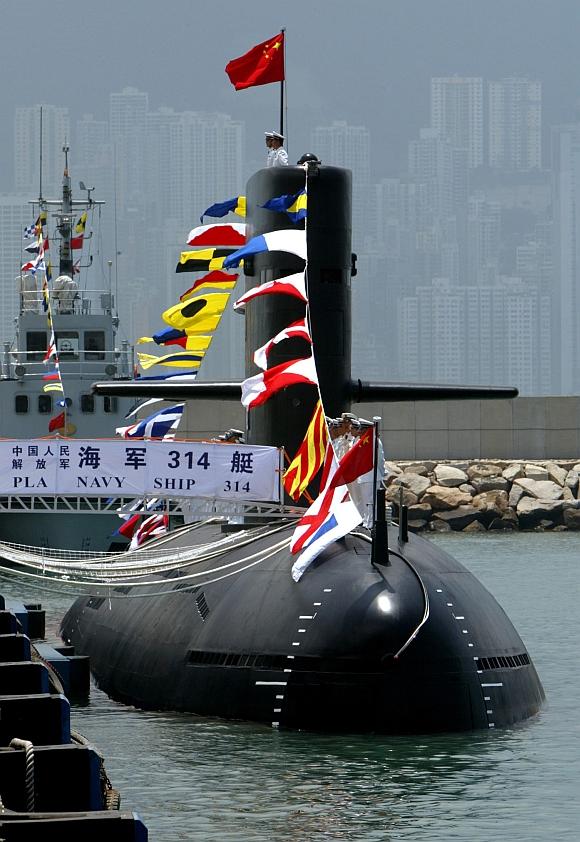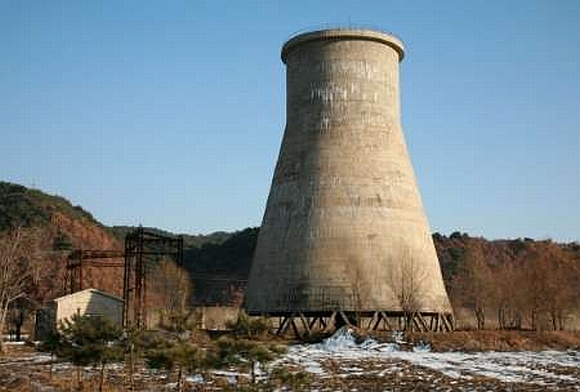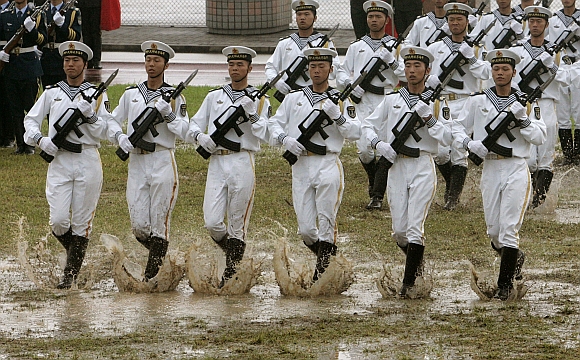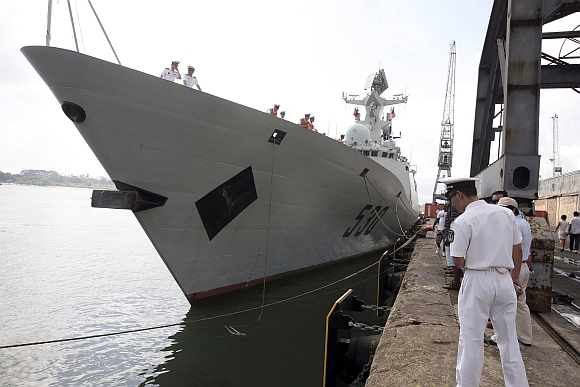
China is emerging as a naval entity and India cannot turn a blind eye to this, says West Bengal governor and former National Security Advisor M K Narayanan
China's geostrategic focus has for long been Asia and its traditional thrust towards East and Southeast Asia. Lately, the ambit of its influence has been widening. It is building advantageous power relationships not only in contiguous territories, but even far beyond, including parts of South and Central Asia. This is happening, alongside strengthening of friendship with countries of West Asia and Africa and increasing its presence in several countries in the Indian Ocean littoral and Africa.
Many of its actions go beyond what is required to ensure unhindered access and connectivity of hydrocarbon-rich Asia and Africa to the Chinese seaboard. China has been aggressive in the South China Sea, and Chinese actions vis-a-vis Vietnam and Japan border on near aggression. Several of China's actions, hence, smack of power projection and are leading to a clash of interest with other major countries in the region, including India.
...

For India, China's inroads into countries on its periphery are disconcerting, to say the least. Chinese influence in Myanmar today is considerable. It is making a major thrust into Thailand, developing a bilateral relationship with that country.
China has developed key interests in Sri Lanka, including helping Sri Lanka to build a major port at Hambanatota. Malaysia is coming under the shadow of China economically. Singapore and Indonesia are important targets of Chinese influence. China is actively wooing Nepal and the Maldives. It is extremely keen to establish a fraternal relationship with Bhutan.
To its West, China has been similarly active. It is strengthening its relations with Iran, and has succeeded in ensuring that this does not damage its relations with Arab and Gulf nations. It is today a factor in power politics in the West Asia region. Its most conspicuous success has been to transform Pakistan into a most reliable ally, developing a close 'lips and teeth' relationship with that country. This includes diplomatic, military and nuclear cooperation.

Special mention needs to be made of China's active involvement in Pakistan's civil and military nuclear programmes. With regard to the former, China has entered into an agreement with Pakistan for the supply of two additional reactors, Chashma III and Chashma IV, contending that the decision to sell two new reactors predates its joining the Nuclear Suppliers Group in 2004.
China's role in the development of Pakistan's military nuclear infrastructure is by now well documented. A Q Khan, the father of Pakistan's nuclear weapons programme himself has acknowledged the crucial role played by China in regard to the supply of enriched uranium, nuclear weapons drawings, and uranium hexafluoride for centrifuges.
Chinese assistance in this area confirms not merely China's perception of Pakistan as a key South Asian ally, but given Pakistan's pronounced hostility to India, underlines its strategic aspect.

In both Afghanistan and Central Asia, China is now moving aggressively taking advantage of the fluid situation prevailing in the region. In both areas, it is exploiting its economic muscle. In the case of Central Asia, the Shanghai Cooperation Organisation -- in which India has only observer status -- is being skillfully utilised to serve as a beachhead for further expansion into the region. As China begins to cast a long shadow across the entire region, the issue for India will be how to convince the weaker states of the region that India offers them an alternative.
Given the assertive foreign policy behaviour of China, the fact that China has become increasingly emphatic in its dealings on broader regional and global issues; China seems more ready than ever to defend its perceived interests against pressures and demands of other players in the regional and international arena, it would thus be myopic for India to display an absence of realism.
This is further buttressed by China's growing military might and the effect that this is having on the strategic landscape. China's economic transformation has facilitated its emergence as a major military power. China's military expenditure (2010) is realistically estimated to be of the order of $119 billion, which is three times as large as India's. It is engaged in a sustained military build up, which is expected to continue over the next few years. Enhanced military prowess, accompanied by a more forceful assertion of its interests, realistically speaking, cannot but adversely affect Indian interests.

Already we can see the evidence and effect of China's projection of 'hard power' abroad. A major plank for this has been the expansion of the People's Liberation Army navy, and upgrading of its missile and nuclear forces. Specifically from India's standpoint, the presence of the 1.6 million land-based PLA is a major factor be considered.
The Chinese navy is in the process of becoming transformed into a Blue Water Navy. China is now seeking to gain access to strategically placed advanced naval bases, specially along crucial choke points in the Indian Ocean. The recent attempt to set up a base in the Seychelles is a case in point. This not only enhances its strategic presence, but also serves its economic interests.
The Chinese refrain that the Indian Ocean is not India's Ocean is a wake-up call for India -- even as China deploys its Jin-Class submarines at a base facility in the southern tip of Hainan Island in the South China Sea (which also has an underground facility for housing submarines) propelling China into active involvement in the Indian Ocean region.
With the possible addition of an aircraft carrier in the near future, and armed with attack submarines — both nuclear and diesel electric -- as also a capacity to adopt asymmetric naval tactics, China's emergence as a naval entity cannot any longer be disregarded.
Excerpts from the keynote address of West Bengal Governor M K Narayanan at a seminar on 'Rise of China: Indian Perspective' at National Institute of Advanced Studies in Bengaluru on December 20, 2011.
...